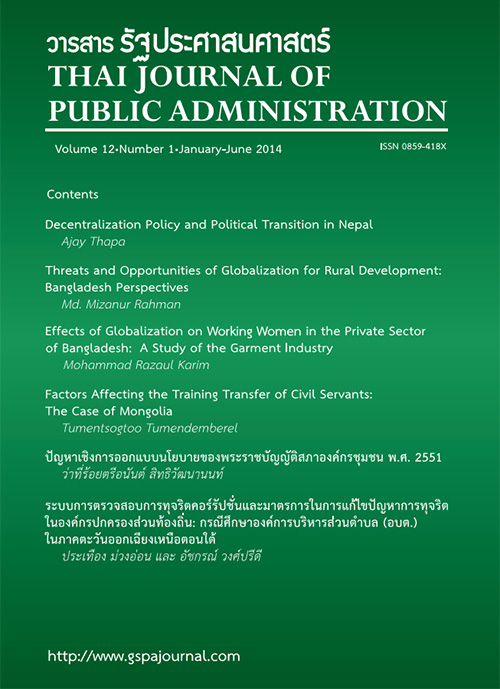Threats and Opportunities of Globalization for Rural Development: Bangladesh Perspectives
Keywords:
Impact of globalization, environment, poverty, women in ruralAbstract
In a globalized world dynamics of rural development in Bangladesh has changed immensely. This article focuses on three major impacts of globalization on rural development. In responding to the research questions that how globalization helped damage environment, what impact it made on poverty and women in Bangladesh, the author wrote this paper using mixed methods. From content analysis it was observed that globalization caused massive damage to environment such as land degradation; deforestation; soil erosion, loss of soil fertility by toxifi cation and salinity; water logging; destruction of coral reefs, mangroves, fisheries; loss of bio-diversity and ecosystem; pollution of air and water bodies etc. Findings relating to impact of globalization on poverty unearthed the fact that exponential increases of rice production and wages of labour employed in agriculture have contributed to reduction of rural poverty in Bangladesh. The increase of agricultural growth was the end result of massive privatization of agricultural inputs in Bangladesh that in fact helped the farmers to adopt modern agricultural practices such as use of HYV, agrochemicals, pesticides, fertilizers. Constant growth with huge remittance earning also helped reducing poverty. In tandem with reducing poverty, globalization has increased income inequality in Bangladesh.
Lastly, from both content analysis and case studies, it was found that globalization has created employment opportunities of women in the export oriented garments industries in the export processing zones of Bangladesh. These poverty stricken rural women were migrated to capital city for work but they were exploited by the foreign investors by providing a low salary employing them in excessive hours for ensuring their optimum production. The article concludes that government should immediately enact laws so that without establishing treatment plants, nobody is allowed to set up industry in Bangladesh for the greater interest of the future generation.
Government should also create more employment opportunities in order to reduce income inequality. In order to reduce exploitation of women, government should fi x minimum wage and working hours; and should help promote some basic amenities for the women workers working in foreign companies. In a globalized world, Bangladesh has no choice but to be integrated with the global economic system. Hence, the best way to deal with globalization is to coexist with it so that Bangladesh can solve its problems utilizing mutual cooperation and collaboration at regional and global levels.



